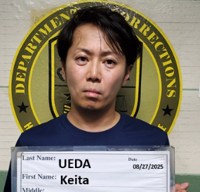Governor Lou Leon Guerrero has summoned lawmakers for a special session on Saturday morning to discuss legislation aimed at expanding her emergency powers. This decision comes in response to urgent conditions at the Guam Memorial Hospital (GMH) and to facilitate the infrastructure contracts related to the new hospital project in Mangilao, bypassing the attorney general’s review.
The governor cited recent electrical issues at GMH, which prompted a response from the Guam Fire Department last week. These problems have raised serious concerns about the hospital’s operational integrity, compelling the governor to act swiftly. “As the head of the Executive Branch of our government, I am prepared to take the reins in the event of such emergencies, to ensure the highest levels of accountability,” stated Leon Guerrero.
While Speaker Frank Blas Jr. acknowledged that he had not thoroughly reviewed the proposed bills, he expressed reservations about linking immediate issues at GMH with the construction of the new hospital. He indicated that discussions with the governor focused on mitigating recent damages at the hospital.
Attorney General Douglas Moylan criticized the governor’s proposals, claiming they could turn Guam into a “banana republic.” He is currently pursuing legal action to block funding for the Mangilao hospital project, citing alleged irregularities. The proposed legislation would effectively circumvent his legally mandated review of contracts tied to the project.
Emergency Powers Act Details
The first bill presented by the governor is titled the “Governor’s Emergency Powers Act.” Leon Guerrero pointed out that the recent electrical issues at GMH have caused “significant damage to power infrastructure.” The fire department responded to an electrical fire that resulted from power fluctuations damaging the hospital’s HVAC system.
Several senators have urged the administration to activate emergency measures to address GMH’s needs, which are not typically available during standard emergencies. The governor argued that existing emergency powers under Guam law are insufficient, stating that her proposals reflect the Emergency Health Powers Act used during the COVID-19 pandemic.
The Emergency Powers Act would grant the governor the authority to declare an emergency for threats to public health, welfare, safety, or critical infrastructure systems. This declaration would enable the governor to utilize all available government resources and seek federal assistance as necessary. Additionally, the bill would allow the governor to transfer funds from the General Fund and waive certain procurement regulations for emergency purchases, including competitive bidding and legal review by the attorney general.
The legislation would also expedite procurement protests and appeals, removing the right to appeal to the courts. Furthermore, it would permit the governor to waive licensing requirements for healthcare providers in light of a nationwide shortage of medical personnel.
Mangilao Hospital Funding Urgency
The second bill focuses specifically on the use of federal funding for the Mangilao hospital project. The project is currently entangled in federal litigation involving various entities, including the Guam Housing and Urban Renewal Authority and the Guam Power Authority. Leon Guerrero highlighted that the $104 million in federal American Rescue Plan funds allocated for power, water, and sewer enhancements will expire if not utilized by December 31, 2026.
The governor warned that failure to act could result in the loss of these critical funds, leaving Mangilao vulnerable to future emergencies. The proposed legislation would exempt the attorney general from reviewing contracts for water, power, or sewer installation at the hospital site. Instead, procurement counsel from the Department of Administration’s General Services Agency would handle these contracts.
Blas expressed concerns about the scope of the governor’s proposals, stating they seemed “more expansive than [he was] comfortable with.” He emphasized the need for a balance between addressing immediate issues at GMH and the governor’s ambitions for the new hospital.
In response to the proposed bills, Moylan condemned them as a “desperate action” that jeopardizes public welfare. He stressed the need for legislative oversight to prevent illegal procurements and called for the governor to focus on staffing GMH adequately to save lives. “Her facility will never be seen for at least 10 years, will cost our people money we do not have, and threatens our quality of life with a debt when we cannot even pay for our current hospital,” Moylan added.
Lawmakers will convene at 10 a.m. on Saturday to deliberate on the two bills that the governor has sent, with significant implications for the future of healthcare on Guam.
